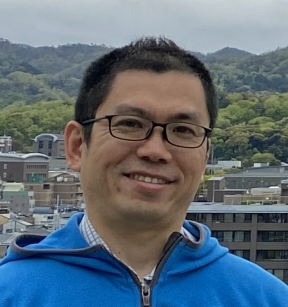 |
Dr. Motoki WatanabeKyoto Prefectural University of MedicineIntegrated Chemproteomics And Cheminformatics-driven Cancer Drug Discovery In The Post-genome Era: From Natural Products To Repurposed Drugs Inufusa International Symposium (5th Intl. Symp. on Oxidative Stress for Sustainable Development of Human Beings) Back to Plenary Lectures » |
Abstract:Genomics-driven strategies leveraging next-generation sequencing have long dominated the “hunt” for oncogenic drivers. Yet in real-world cancer biology, malignant phenotypes often arise not from mutations alone, but from aberrant protein expression, dysregulated activity, and abnormal subcellular localization, which are often invisible to genomics alone [1]. To address these blind spots, we have established a platform that integrates chemoproteomics with cheminformatics to “fish” unconventional cancer-related proteins together with potent inhibitors among existing drugs. Our approach involves two key steps: (i) chemoproteomics to identify binding proteins of bioactive natural compounds with antitumor effects, and (ii) cheminformatics, using molecular dynamics simulations, to screen for repurposed drugs targeting those proteins. This strategy yields unique druggable targets and inhibitors that cannot be readily uncovered by a conventional genomics-driven approach. Here, using sesaminol [2] from sesame and perillyl alcohol [3] from perilla as chemical probes, we present two successful cases in which we identified unique target proteins: (1) ribosomal protein S5 (RPS5) as a mediator of resistance to MEK inhibitor-induced cell death in KRAS-mutant cancers [4], and (2) adenine nucleotide translocase 2 (ANT2) as a critical target in endocrine-resistant estrogen receptor-positive breast cancer. Notably, we also discovered candidate compounds that could be used as effective inhibitors against RPS5 or ANT2. Thus, our chemoproteoinformatics approach, focusing on “Not Driver, but Targetable” proteins, opens a new avenue for target and drug discovery in the post-genome era. |
|